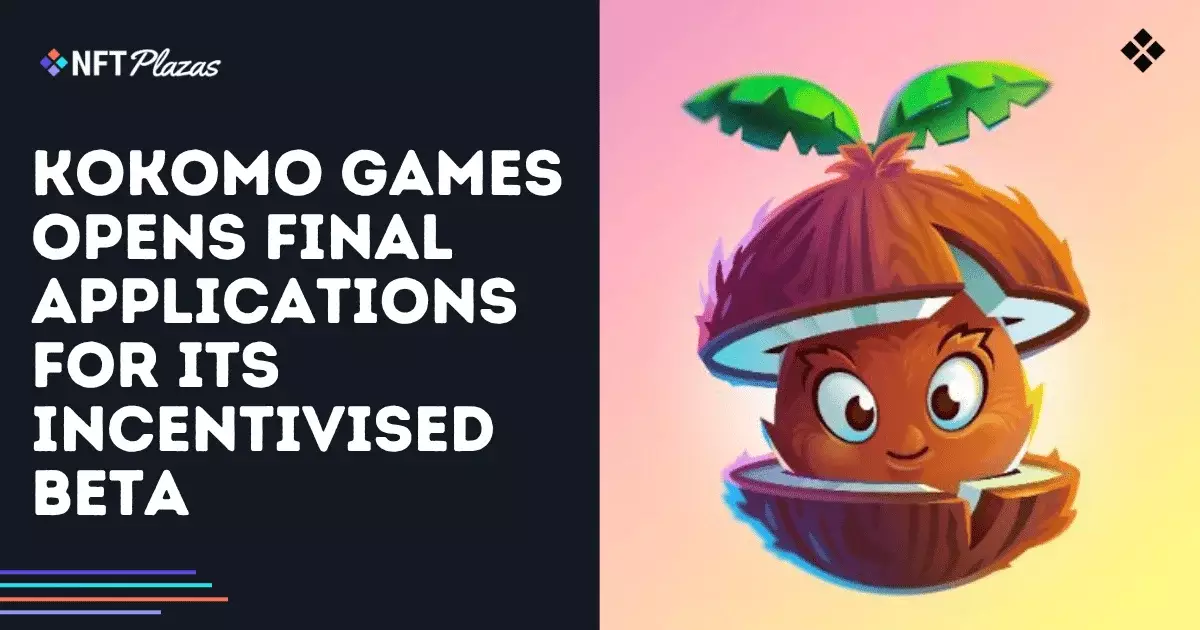The recent buzz surrounding Kokomo Games’ incentivized beta release is emblematic of an industry that promises innovation but often delivers little more than a digitally-enriched mirage. While the company touts its upcoming browser-based gaming platform, featuring mini-games on a blockchain ecosystem, this strategy masks a deeper reality: NFT gaming remains trapped in a cycle of hype without meaningful progress. Instead of revolutionizing the gaming experience, platforms like Kokomo’s serve as mere containers for superficial engagement—relying heavily on what could be lost or gained through speculative token and NFT mechanics, rather than genuine entertainment or substantive gameplay. These efforts, staged as breakthroughs, often ignore the foundational weaknesses inherent in integrating blockchain technology with casual gaming.
Pre-Funded Accounts and Glorified Play for Feedback
Offering pre-funded accounts and early access sounds appealing on paper, but it raises questions about the actual value these beta tests provide — both to players and to the industry. Are these trials designed to gather authentic player feedback or instead to generate buzz around vaporware projects? The truth is often more suspect; early access becomes a marketing maneuver that masks unfinished, buggy, or unengaging products. The emphasis seems to be less on refining game mechanics and more on harvesting community data and engagement metrics for investors. Players are lured into a false sense of participation, but ultimately, they are guinea pigs in a corporate gamble where feedback might be ignored once the platform reaches commercialization.
The NFT and Token Gamble: Convenience or Hype?
Kokomo’s integration of NFTs, utility tokens, and blockchain features feels like a calculated attempt to bridge gaming with speculative finance—yet it is fraught with limitations and contradictions. NFTs apostrophized as utility tools for reducing in-game fees or gaining exclusive features often turn out to be digital collectibles with no intrinsic gaming benefit. Furthermore, the promise of a native token, $KOKO, launching alongside the platform, appears far more aspirational than practical, especially considering the history of similar projects flopping or collapsing under regulatory scrutiny. The real risk here is entrenched speculation—players and investors alike may find themselves ensnared in an ecosystem that prioritizes tokenomics over meaningful gaming mechanics, ultimately diluting the core appeal of casual games.
Hype vs. Substance: The Illusive Power of the Blockchain Ecosystem
The near-messianic language surrounding blockchain gaming often hypostatizes its potential but neglects core issues. Kokomo Games boasts high-profile backers like Steve Aoki and Mike Shinoda, but celebrity endorsements do little to resolve fundamental problems: unrefined gameplay, lack of compelling content, and limited player engagement beyond superficial blockchain features. The promise of a complete ecosystem with NFTs, token rewards, and governance is ambitious, yet the actual execution appears superficial—merely a veneer over tired mini-games like Snake, Chess, Blackjack, and Arrow Racer. These games, despite their familiarity, lack innovation and are unlikely to retain players once the initial spark of novelty fades.
Reality Check: Why This Industry Continues to Fall Short
Despite the shiny veneer of blockchain integrated gaming measuring up as the future, skepticism remains warranted. The industry’s focus on token gating, exclusive NFTs, and incentivized feedback ultimately distracts from producing truly engaging and sustainable gaming experiences. There’s a dangerous obsession with building layers of financial incentive into a domain primarily defined by entertainment, risking alienating core audiences who seek genuine fun rather than crypto-centric gimmickry. When early access is over, and the platform finally launches, it remains to be seen whether these projects have enough substance to survive beyond hype cycles. To date, blockchain gaming’s track record indicates more failure than success, suggesting that this latest bet on casual mini-games is unlikely to lead to significant change—or even lasting appeal—beyond a fleeting moment of buzz.

